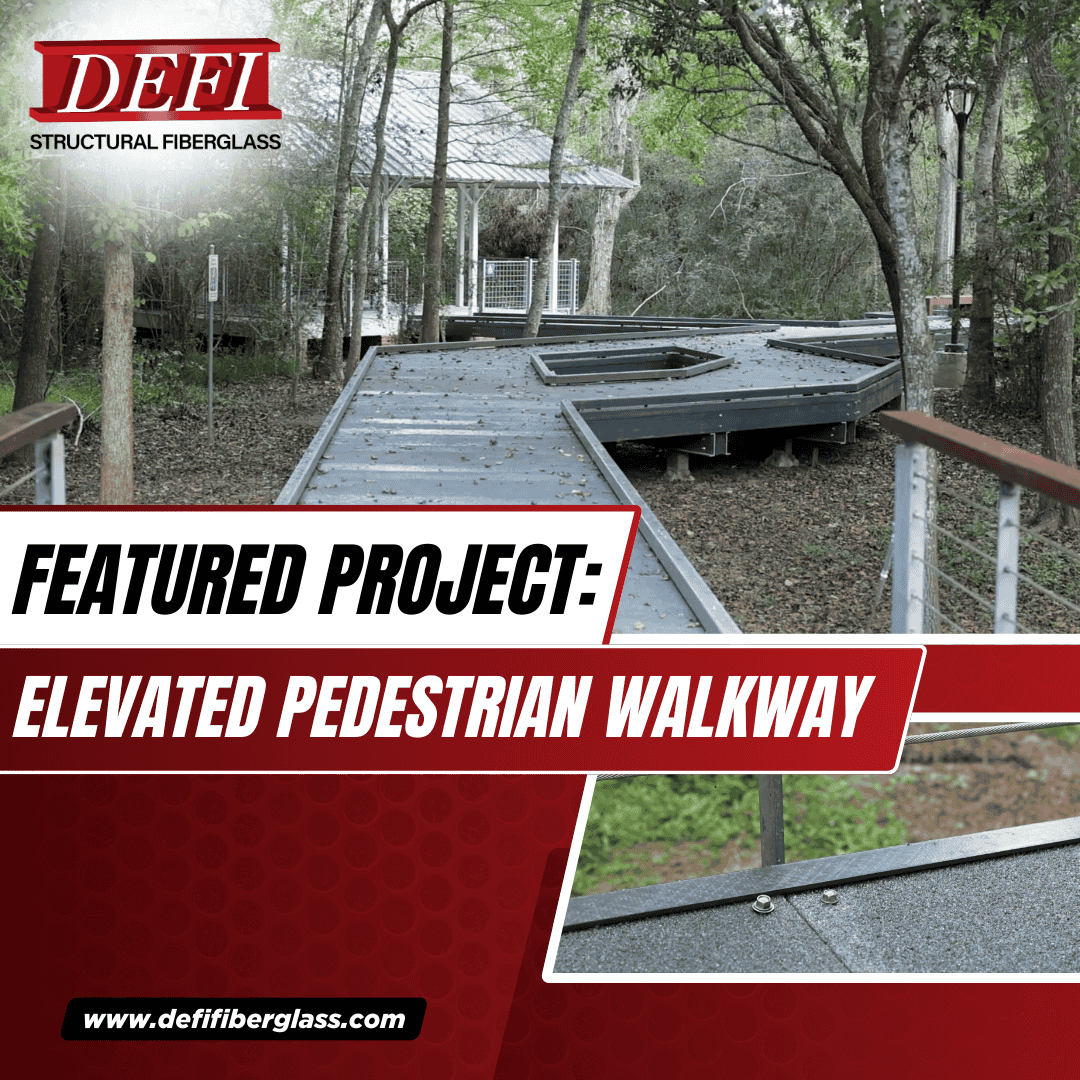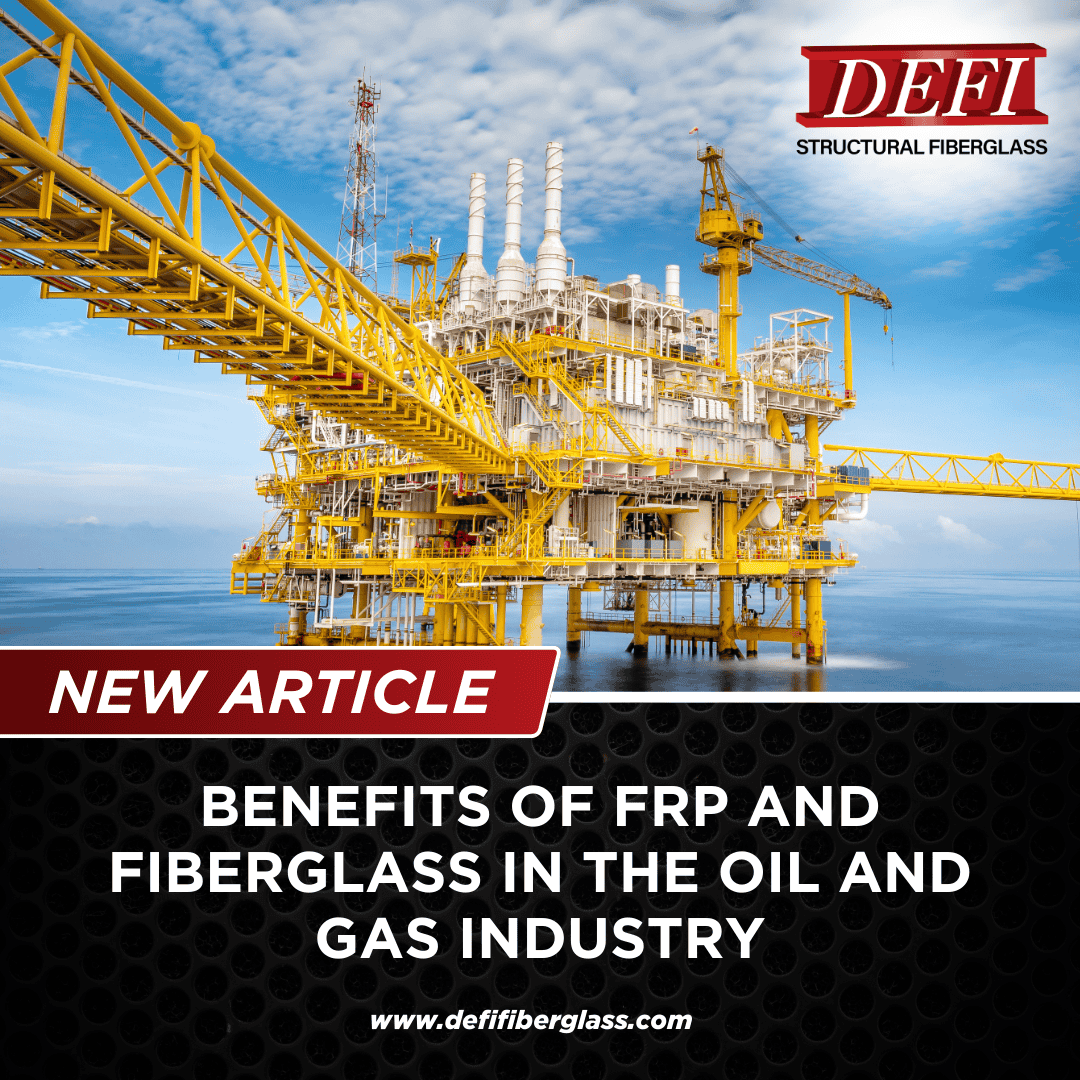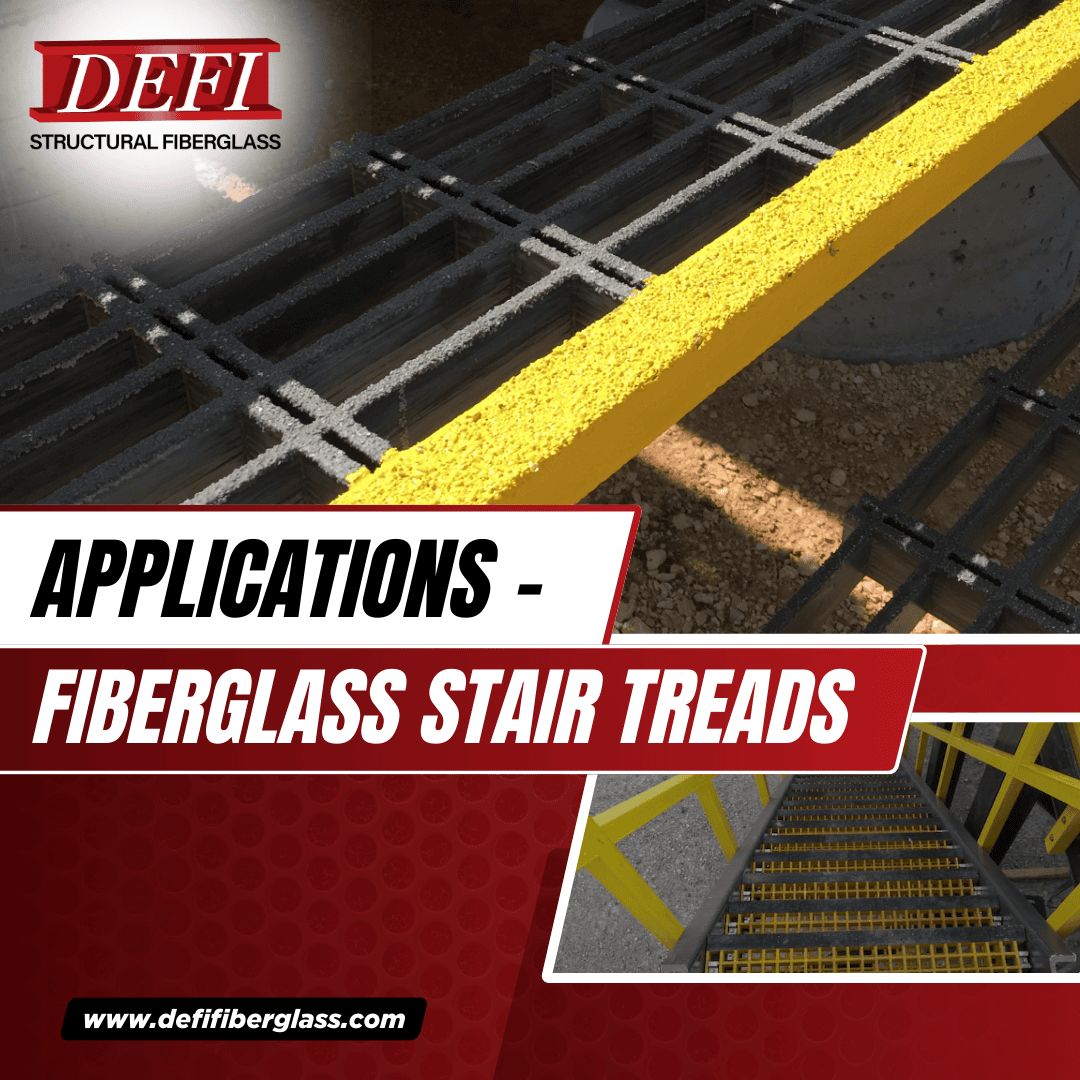A: VIRTUALLY, NONE. SINCE FRP IS CORROSION RESISTANT AND UV STABLE, YOU REALLY DON’T HAVE TO DO ANY TYPE OF MAINTENANCE TO IT.
Fiber Reinforced Plastics (FRP) are composite materials that are unique and valuable source material in many respects. One of the most appealing attributes of FRP is that they are adaptable to just about any environment—especially ones where traditional materials would be short-lived and require a lot of maintenance.
FRP, on the other hand, requires virtually no maintenance even in environments with harsh elements such as corrosive material exposure, UV exposure, and electrical hazards. FRP is a very cost-effective solution for many industries due to its reliability versus traditional materials like metal and wood.
5 REASONS WHY FRP IS PREFERRED OVER METAL
When considering materials for structures in harsh environments, the biggest financial worry is the cost or maintenance. While materials and installation are a significant upfront cost regardless of which material is used—metal has the most expensive perpetual maintenance costs. Not to mention, that eventually metal will corrode, rust and break, or can also cause an electrical accident.
Since FRP has garnered more notoriety in the industrial workplace, it has become the new choice for companies all around the world and for good reason.
- High Strength-to-Weight Ratio– FRP is much lighter than metal yet offer more strength to weight ratio despite the lighter weight. Due to the nature of fiberglass, FRP also has amazing flexural, compressive and impact strength to weight ratio that metal. That lightweight is important as well because it makes logistics of transport and installs less expensive and easier. All of these benefits without sacrificing strength.
- Customized To Your Needs- Every industry has its own unique challenges to overcome. DEFI FRP designers can tailor and alter the design of our FRP to meet your exact requirements. For example, when serving our chemical plant clients, we must make sure their FRP has a level of corrosive resistance unmatched by any other material. Metal rusts and corrodes—that’s a fact. FRP structures are extremely corrosion resistant and while metal would need more maintenance to make sure it’s safe—FRP remains safe.
- Anisotropic- Our plant team can push the performance and efficiency of your structures when they capitalize on the anisotropic qualities of FRP. Since maximum strength is directly tied to the direction of the fiber strands that reinforce the plastic—our team can optimize the materials we create to allow the structure to perform at peak level.
- High Tensile Strength With More Flexibility-FRP, as mentioned already is known for outstanding strength. That also applies to tensile strength when compared to metal. Because FRP is very flexible, they can take impact better than metal. Metal is prone to dent and deform when a sizeable impact occurs. FRP, on the other hand, does not remain rigid, therefore it can absorb the impact and spread it over a greater surface area.
- Design Flexibility- DEFI team members can create just about any design or shape to your specific requirements. This is a huge advantage over traditional materials, especially metal. When making FRP a center of your project, you get the extra benefits of streamlined design, consolidation and noise reduction.
CORROSION RESISTANCE MEANS NO MAINTENANCE
One of the main reasons FRP are virtually maintenance-free is because in corrosive environments where other materials degrade—FRP is unaffected. This means there is no more replacing or repairing corroded grating, pipes that have rusted through, or handrails that have cracked.
It is this one shining property of FRP that has so many different industries viewing FRP as the most cost-effective solution ahead of traditional materials. Where metal was once the dominant material of choice, it has now moved behind FRP as a much costlier solution in the long-run.
How Does FRP Resist Corrosion?
Fiber Reinforced Plastics are lauded for their corrosion resistant properties as well as their ability to resist abrasions as well. Since FRP are a composite; they combine fiberglass and polymer resins to create a unique material; both ingredients play a specific role once bonded.
Fiber strands are responsible for the majority of the strength found in FRP and resins provide the resistance to corrosion and direct stress to the fibers. Because the resins are thermoset, FRP will not melt when heated since the material is infusible.
It’s All About The Laminates
DEFI FRP products are given their unique resistance to the elements by using a process of pultrusion that adds a specific characteristic to the mixture before it is set. There are many different laminate schedules but the most often requested is the corrosion barrier.
Typical Functions of the Corrosion Barrier
- Resistance to corrosion
- Resistance to abrasion
- Resistance to chemicals
Generally, FRP products constructed using polyester or vinyl ester resins due to their superior thermal, and corrosion resistance traits. However, that doesn’t mean that all manufacturers will offer those specific resins. Corrosion barrier and resin choices are a key component that can affect the overall performance of your product. You should always make sure you’re getting the right combination for your project needs.
DEFI FRP IS THE BEST FOR ANY APPLICATION
At DEFI our team gets detailed information on what application you plan on using our products in and we make to order, FRP products with the proper materials to meet your specifications. We offer only the best resins to deliver FRP products that give you a cost-effective alternative that will last in any industrial environment. Our products give you the strength of steel and then some while cutting out the extra weight, freight costs, and installation hassles.
Whether it’s a small project or a massive plant that needs all structures fitted with FRP grating and other parts—we have you covered. We are confident in our pultruded FRP products and stand behind them 100% as they outperform other manufacturers in any application.
Structural Applications
- Mining and Minerals
- Oil and Gas
- Nuclear
- Water and Wastewater
- Restaurant/Hotel
- Chemical Processing
- Pulp and Paper
- Water Purification
- Electric Utility
- Telecommunications
- HVAC
- Desalinization
- Architectural
Structural Components
We manufacturer all of our own products in a wide variety of structural components including decking, platforms, grating, beams, bars, and angles. All of our products can be fitted with specific qualities as well as textures for non-slip needs for any component such as:
- Pedestrian bridges
- Platforms
- Walkways
- Railings
- Catwalks
- Grating
- Municipal playgrounds
- Stairways
- Fencing
- Ladder and cage systems
Upgrades And Retrofitting
FRP has been used widely in industries such as marine, water treatment plants, chemical processing and automotive factories to replace their aging metal counterparts. Regardless of the market, our FRP products can provide a much needed long-term upgrade at a lower cost of ownership than metal.
FRP Retrofit Structural Application Considerations
With all of the features found in FRP, they should be seriously considered as a solution for repair and shoring up structural strength no matter what industry you serve.
Key Retrofit Benefits for FRP Structural Applications
- Increases load capabilities while not adding substantial weight or footprint size
- Seismic retrofitting of steel concrete and masonry structures in earthquake-prone areas
- Shores up the structural integrity
- Strengthens other structural components with better load distribution
- Prevents progressive decline of structures
- Lowers the cost of ownership
- Can be installed without significant changes to existing weight and dimensions of other structural elements.
DEFI DELIVERS SOLUTIONS FOR THE FUTURE
At DEFI we aren’t in the business of short life cycle products that last only a few years. We use our composite materials to solve your challenges in design. Our products reduce your overall costs, performs better than metal, and in the long-run will cost you much less than traditional products.
We stand behind not only our products which we manufacture to our stringent standards, but we also stand behind our customer service. Contact us today and let us design your project for the long haul.



